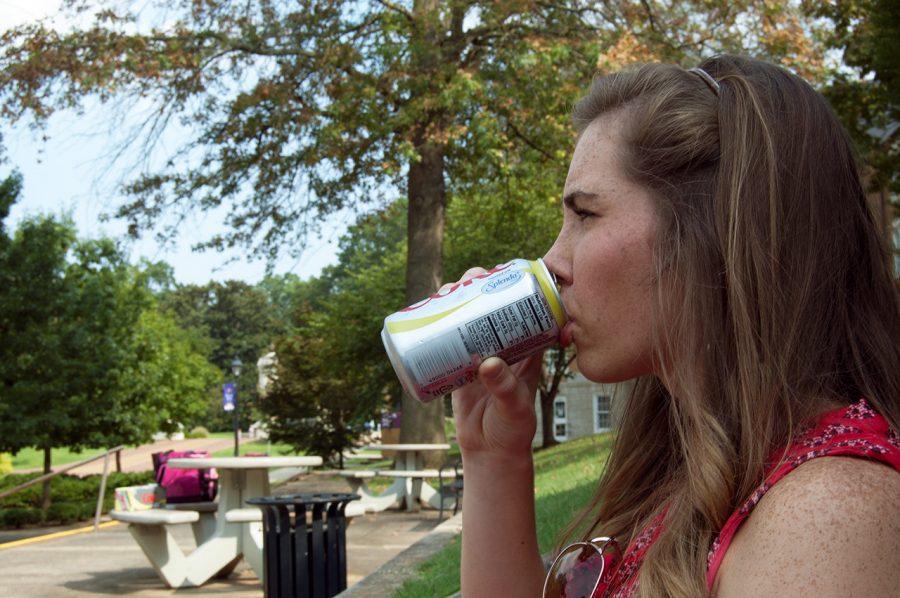Artificial sweeteners used to avoid ‘Freshman 15,’ impacts health
September 26, 2013
Some college students are replacing sugar with artificial sweeteners to cut back on their sugar intake and avoid the infamous “Freshman 15.” However, some research is showing artificial sweeteners may actually be worse than regular sugar.
“I try not to eat or drink much sugary things period,” said Rebecca Logsdon, a UNA student. “I work in a coffee shop, though, so when I have a sweet tooth, I get sugar free drinks that have Splenda in it – so maybe like a few times a week. I prefer regular drinks to diet ones just cause they taste better.”
UNA student Lisa Seale on the other hand said she rarely uses artificial sweeteners or products with artificial sweeteners.
“I prefer regular drinks because the flavor is better in my opinion,” said Seale. “Also, I have always heard that diet drinks are worse for you than regular drinks are.”
Jennifer Dawson, assistant professor of nursing, said students have to have some sugar in their diets.
“You have to have some sugar because your brain can only utilize sugar,” said Dawson. “Spinal fluid and the fluid that surrounds the brain has glucose in it, so the brain has to have a certain amount of glucose. Sugar is good in moderation. To be completely sugar free your brain is not going to function, but too much sugar will be stored as fat.”
Sugar and artificial sweeteners are both used to sweeten products, but they are very different.
“Artificial sweeteners are just that: artificial,” said Amanda Lier, a nurse practitioner at Bennett Infirmary. “Some are derived from sugar, some are derived from sugar alcohols, and some are synthetically processed.”
Both artificial sweeteners and sugar impact your health, Lier said.
“Artificial sweeteners can aid in weight loss and are a good alternative if you have diabetes,” Lier said. “Health concerns from consuming too much artificial sweeteners and/or sugar can include weight gain, tooth decay, headaches, upset stomach and poor nutrition. Artificial sweeteners are regulated by the FDA (Food and Drug Administration). Research is still lacking on a few of the artificial sweeteners, but the FDA does categorize them as GRAS (generally recommended as safe).”
Nikita Duke, UNA instructor of nursing, said artificial sweeteners should be okay when used in moderation.
“It is probably not good to consume diet drinks and artificially sweetened drinks all the time anyways,” Duke said. “Water is always the best thing to consume.”
“Even if you’re using artificial sweeteners, watch your serving sizes on them because they can have negative health effects,” Dawson said, “You have to read labels because they’re not all the same. You have to be aware of what you’re putting in your body. You have to know the differences.”
There are many different kinds of artificial sweeteners available, including aspartame, agave nectar, high-fructose corn syrup, honey, saccharin, sucralose and sugar alcohols. Several of the sweeteners are color coded: aspartame is found in blue packets; saccharin, also known as Sweet’N Low, is found in pink packets; and Sucralose, or Splenda, is found in yellow packets.
While sugar and artificial sweeteners can give students a slight energy boost, Duke recommends other, healthier methods students can utilize to increase their energy.
“They can make sure they are getting enough sleep,” Duke said. “Keep a good exercise regimen and keep hydrated. Also, eating more whole grains and fiber containing foods and less sugary foods actually last longer in the body and help you have more energy.”
Likewise, Lier said there are better ways to avoid the “Freshman 15” instead of substituting artificial sweeteners in place of sugar.
“Students can avoid the ‘Freshman 15’ by a combination of exercise, good nutrition, and stress management,” Lier said. “Eating healthy foods with proper portions is key. Exercise is just as important. Ensuring proper sleep is essential to maintaining good health. Learning stress management and time management techniques will lead you to make good decisions regarding your health.”












